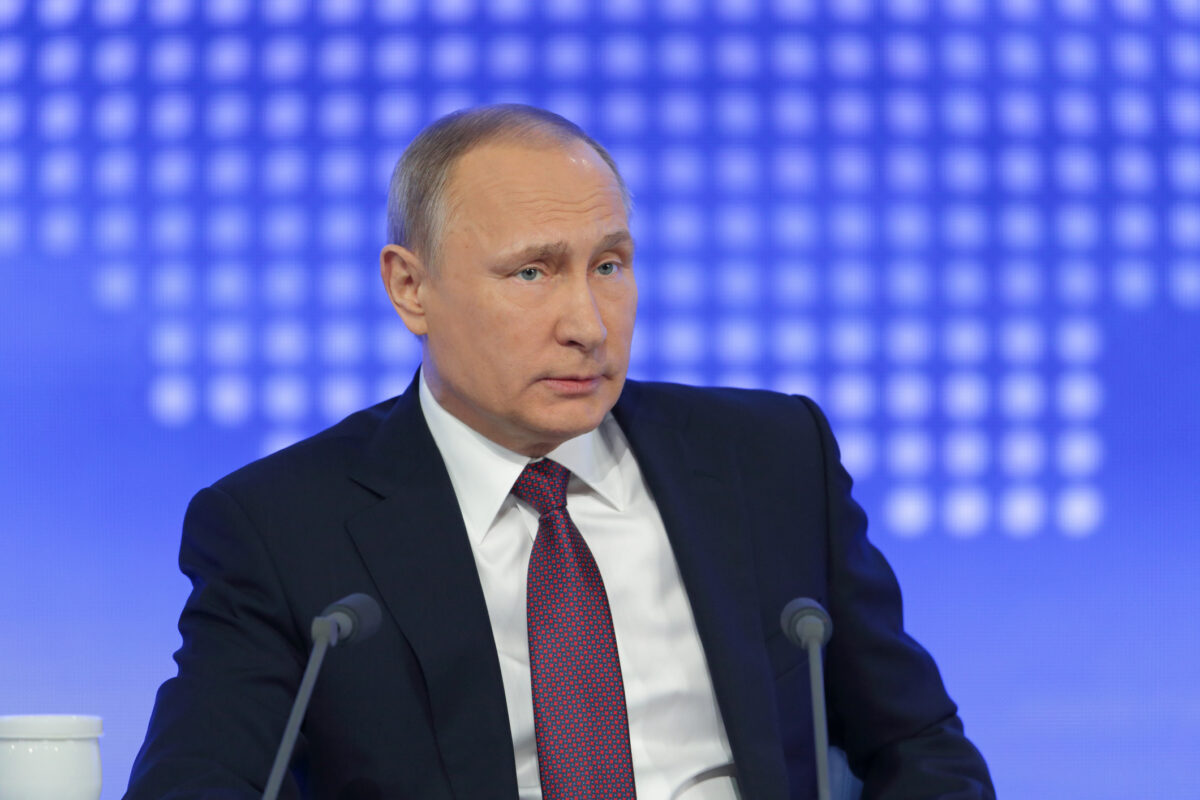Since the early 2000s, the Russian state has crafted a complex legal and institutional system aimed at reinforcing authoritarian rule while maintaining a façade of lawful governance.
This strategy corresponds to what many scholars term authoritarian legalism—a governance model in which legal frameworks are not dismantled but instead repurposed to create the illusion of legality while centralising unchecked authority.
In the Russian case, the legal system functions not as a guarantor of rights, but as a mechanism of coercion, enabling political suppression to take place under the guise of judicial legitimacy.
Central to this framework is the deliberate use of anti-extremist legislation, along with laws regulating ‘foreign agents’ and ‘undesirable organisations’. While formally justified on grounds of national security or public order, these laws are primarily designed to strengthen state control and eliminate ideological, political, and identity-based diversity.
This study investigates the development and application of Russia’s extremism-related legal instruments between 2002 and 2025. It explores how these mechanisms have been deployed to silence political opposition, dismantle independent civil society, and target vulnerable communities—including religious minorities and LGBTQ+ individuals.
The following analysis outlines the key strategies and institutional patterns that underpin this evolving legal architecture of control.
Strategic legalism and the architecture of control
The Kremlin has pursued the creation of a legal and regulatory system capable of suppressing perceived threats without resorting to overt authoritarian tactics.
Instead of relying solely on direct coercion, the Russian state has embraced a strategy of strategic legalism—the selective application of seemingly neutral laws to serve political ends. This method enables authorities to uphold a veneer of legality, preserving domestic legitimacy and mitigating international criticism, all while using the legal system to constrain dissent.
At the centre of this framework is the 2002 Federal Law on Combating Extremist Activity, originally enacted to counter terrorism. Over time, however, the law has been repeatedly amended to incorporate vague and malleable language—such as ‘incitement of social discord’, ‘discrediting public institutions’, and ‘justifying Nazism’.
These ambiguous provisions provide legal grounds for targeting peaceful activists, independent media, and minority groups under the pretense of national security.
Criminalisation of dissent and political opposition
The enforcement of extremism legislation in Russia has become increasingly politicised since 2012, following the introduction of the ‘foreign agent’ designation for NGOs.
Though framed as a transparency measure, the label quickly took on stigmatizing connotations, often associated with espionage in the public imagination. It was broadly applied to organisations receiving foreign funding and engaging in loosely defined ‘political activity’, enabling authorities to target a wide range of civic initiatives.
Over time, the scope of the law expanded to include individuals, encompassing journalists, academics, and activists, even in cases where no financial connection to foreign entities existed. A significant escalation occurred in 2021, when a Moscow court designated Alexei Navalny’s Anti-Corruption Foundation (FBK) as an extremist organisation.
This ruling criminalised any form of public or private support for Navalny’s anti-corruption work and paved the way for the mass prosecution of his associates. By 2025, dozens of FBK members and affiliates had been imprisoned, and three of Navalny’s attorneys received lengthy prison sentences. These developments underscore a shift in state strategy: the Kremlin no longer relies solely on brute force but now employs legal instruments as tools of political elimination, using the law itself to delegitimize and dismantle opposition movements.
Expansion of ‘undesirable’ and ‘foreign agent’ labels
In addition to extremist classifications, the Russian state has developed a parallel legal mechanism targeting civil society through the concept of ‘undesirable organisations’, introduced between 2015 and 2016.
This framework has been used to outlaw numerous foreign and international NGOs considered ideologically misaligned with Kremlin priorities. Notable examples include the Open Society Foundations, Transparency International, and the Norwegian Helsinki Committee, all accused of threatening national values or constitutional stability.
A major turning point occurred in 2022, when the foreign agent law was significantly broadened. Under the new provisions, individuals can now be labeled foreign agents for expressing personal views online that authorities interpret as influenced by foreign agendas—regardless of actual funding.
Those designated face onerous disclosure requirements, public stigmatisation, and the threat of criminal penalties. The result is a legal environment that institutionalizes soft censorship, in which self-censorship becomes a necessary strategy for personal and professional survival.
Beyond silencing criticism, these legal tools serve a more insidious purpose: they function as instruments of social engineering. By equating dissent with foreign interference or moral deviancy, the state constructs a narrative in which political and cultural nonconformity is cast as a threat to national cohesion. This logic conditions the public to perceive alternative viewpoints not simply as disloyal, but as fundamentally hostile—thus deepening societal polarization and legitimising repression.
Weaponisation of extremism laws against the LGBTQ+ community
A key characteristic of Russia’s extremism legislation is its doctrinal malleability. Originally introduced to combat violent threats, the framework has gradually evolved into a catch-all legal instrument used to regulate not only behavior, but also morality,identity, and expression. This transformation demonstrates how authoritarian regimes can repurpose national security laws to enforce ideological conformity, turning legal doctrine into a tool of cultural repression.
Nowhere is this shift more visible than in the state’s escalating campaign against LGBTQ+ communities. While official hostility toward so-called ‘non-traditional relationships’ has long been present—most notably through the 2013 law banning the promotion of LGBTQ+ content to minors—the legal landscape grew significantly more repressive in December 2022, when amendments extended the ban to include all audiences, regardless of age.
By mid-2023, authorities began compiling lists of individuals and organisations allegedly engaged in ‘LGBT propaganda’. The crackdown culminated in November 2023, when the Russian Supreme Court declared the ‘international LGBT movement’ an extremist organisation. This unprecedented ruling effectively equated LGBTQ+ identity with extremism, criminalising not only activism, but also symbolic expressions, public support, or neutral depictions.
The result is a system of institutionalised homophobia, codified in law and enforced through arrests, surveillance, raids on community spaces, and the suppression of support networks.
Repression of religious minorities
Religious freedom in Russia has been increasingly restricted under the broad application of anti-extremism legislation. A significant example is the 2017 Supreme Court ruling that banned Jehovah’s Witnesses, categorising the group as extremist. This decision triggered widespread state persecution, including raids on homes, confiscation of property, and criminal prosecutions.
By 2024, numerous adherents had received prison sentences exceeding eight years—not for inciting violence, but for the peaceful exercise of their religious beliefs.
Muslim communities, particularly those associated with Hizb ut-Tahrir, have also been disproportionately targeted. Although the organisation promotes nonviolent political reform, Russian courts have designated it as extremist. Trials involving alleged members are often conducted in secrecy, with anonymous witnesses and ambiguous evidence, violating fundamental principles of transparency, fairness, and due process.
These cases exemplify how anti-extremism laws are manipulated to suppress religious expression and eliminate ideologically inconvenient groups under the pretext of national security.
Targeting of civil society and public health programmes
The cumulative impact of Russia’s repressive legal apparatus has been the near-total dismantling of independent civil society.
Non-governmental organisations working in areas such as human rights, democratic governance, public health, and education now operate under severe legal and administrative pressure. Regulatory burdens, coupled with the constant threat of criminal prosecution, have rendered independent activism increasingly unsustainable.
A stark example occurred in April 2025, when the Elton John AIDS Foundation was declared an ‘undesirable organisation’ on the grounds of allegedly promoting ‘non-traditional sexual relations’.
The decision not only reflected the regime’s ideological rigidity but also jeopardised critical HIV/AIDS prevention and treatment services, exposing how political orthodoxy is prioritised over public health.
As a result of these constraints, independent civic engagement has virtually vanished. Many organisations that once played a vital role in promoting accountability and defending social rights have either closed their doors or relocated abroad. This has left a void in the domestic public sphere, weakening social oversight and further insulating the state from scrutiny or dissent.
Judicial complicity and legal ambiguity
The enforcement power of Russia’s repressive legal framework is underpinned by the systemic subordination of the judiciary. Once nominally independent, the court system now functions primarily as an instrument of executive will.
Judicial bodies consistently ratify government decisions without scrutiny, routinely dismiss appeals, and uphold politically motivated charges. The courtroom has, in many cases, ceased to operate as a venue for impartial adjudication and instead serves as a ritualised stage for validating state narratives.
Proceedings often resemble choreographed performances in which guilt is presumed, and outcomes predetermined, reinforcing rather than challenging the regime’s authority.
The ambiguity embedded in key legal terms—such as ‘extremism’, ‘undesirable activity’, and ‘foreign agent’—further undermines the principle of legal certainty, which is essential to the rule of law. These vague designations allow authorities to interpret laws flexibly and arbitrarily, removing predictability from the legal process and turning the law into a tool of discretion rather than protection.
Prosecution of legal professionals and journalists
Legal professionals representing clients in politically sensitive cases are increasingly targeted by the state. The 2025 imprisonment of Alexei Navalny’s legal team signaled a new threshold in the Kremlin’s repression—demonstrating that even those upholding the right to defense are no longer protected. Tactics such as disbarment, constant surveillance, and fabricated criminal charges are now used to deter legal advocacy in cases deemed politically undesirable.
A similar pattern has emerged in the field of journalism. In 2024, numerous journalists were arrested under extremism-related statutes for covering topics such as corruption, human rights violations, and Russia’s military conduct. Independent media organisations labeled as ‘foreign agents’ are forced to add stigmatising disclaimers to their content and face heavy fines or closure. As a result, investigative journalism has nearly disappeared, supplanted by tightly controlled state narratives.
Beyond silencing individual voices, these measures have a broader institutional consequence: the erosion of collective memory. With reporters in exile, legal records systematically destroyed, and civil organisations dismantled, the state is actively constructing a version of history devoid of dissent.
This process of engineered forgetfulness serves to reshape public understanding, ensuring that future generations encounter only a state-curated past.
A blueprint for authoritarianism
The evolution of extremism-related legislation in Russia reveals a sophisticated model of state repression through legal formalism.
Far from discarding the institutions of law, the Kremlin has instrumentalised them—transforming courts into political theaters, legal categories into ideological weapons, and civic language into surveillance. This strategic legalism allows the Russian state to maintain international legitimacy while orchestrating a domestic climate of fear, conformity, and silence.
What emerges is not merely a record of repression, but a blueprint for authoritarian adaptation in the 21st century. The Russian case illustrates how legal systems, when deprived of independence and accountability, can become potent instruments of authoritarian resilience.
Reversing this trajectory will require more than legal reform—it will demand the restoration of judicial integrity, institutional memory, and the fundamental principle that law should protect, not persecute.
Photo: Dreamstime.







